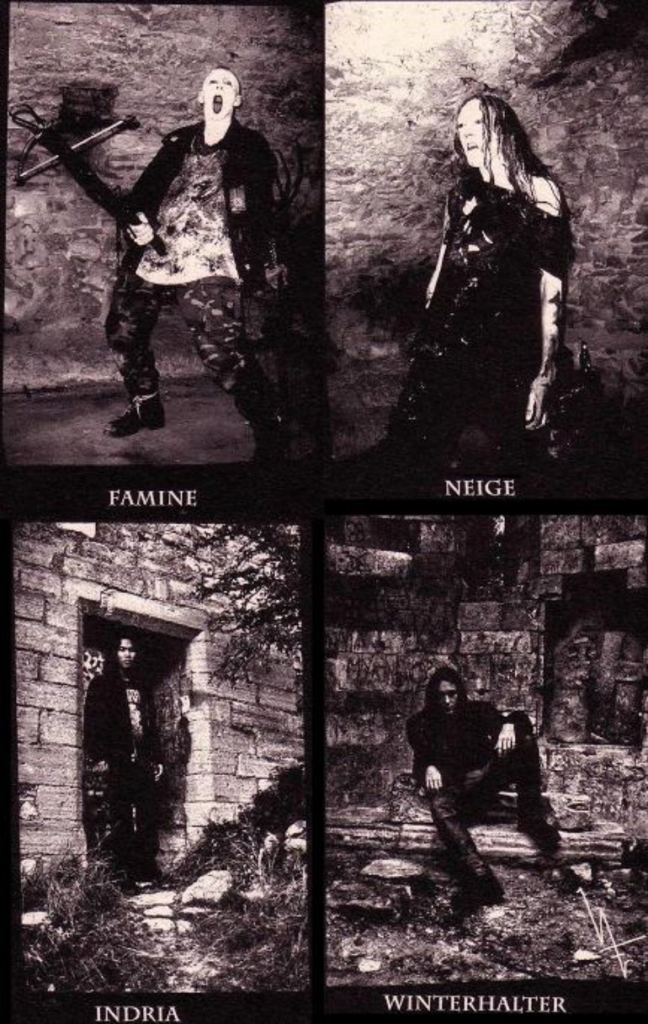I know I just did an article about the albums that receive way more of my attention than anything else the band has released, but it was about just that: my attention. Endless lurking on metal forums and YouTube comments sections does not make me believe my opinions on these bands’ discographies are particularly common. However, I cannot say the same for the following albums, which receive universal acclaim from the bands’ fans…at the expense of everything else the bands have released.
It’s not that these albums are bad; these are all great albums and I entirely understand their appeal. I just don’t necessarily think they are the best album by their respective bands. So for every album I criticize for being overrated, I will suggest another record by the same band that could use more attention. If I don’t honestly believe the band has released a better record, I won’t include an overrated album on this list no matter how much attention it gets (sorry, Slaughter of the Soul).
5. Mgła – Exercises in Futility (2015)
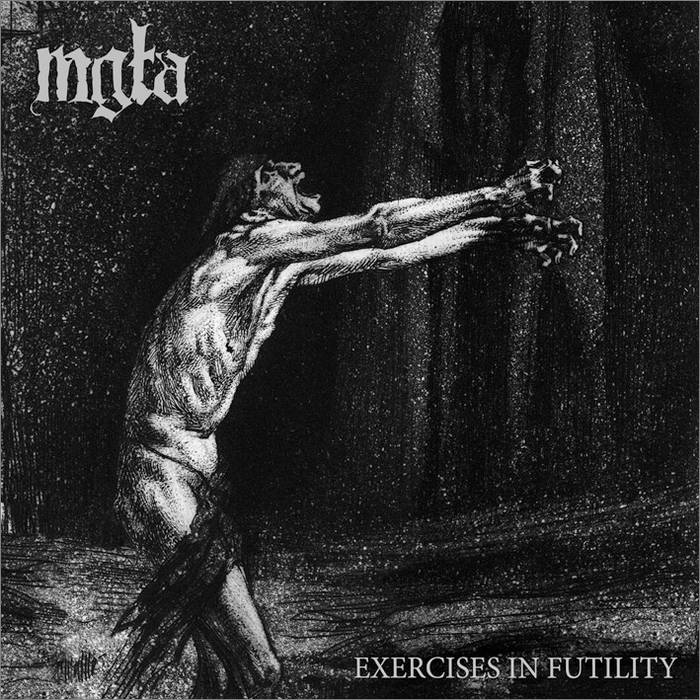
When I was on Facebook, I was in a group called “Mgła hoodposting” that was, you guessed it, a Mgła meme group. But even in a group of the most dedicated Mgła fans who only go outside to see a Mgła concert, most wouldn’t shut up about this one particular album. All five of their most popular tracks on Spotify are from Exercises, and it has the most votes of any of their albums on Metal Storm.
It’s a great album, don’t get me wrong (I’m going to have to repeat that for every album on this list, aren’t I?). Catchy riffs, some of the most unique drum work in black metal, and an overall dark and foreboding atmosphere. Just like all their other albums.
I will concede that they did it better on this album than their previous two releases, but you know where they did it even better?
Age of Excuse (2019)
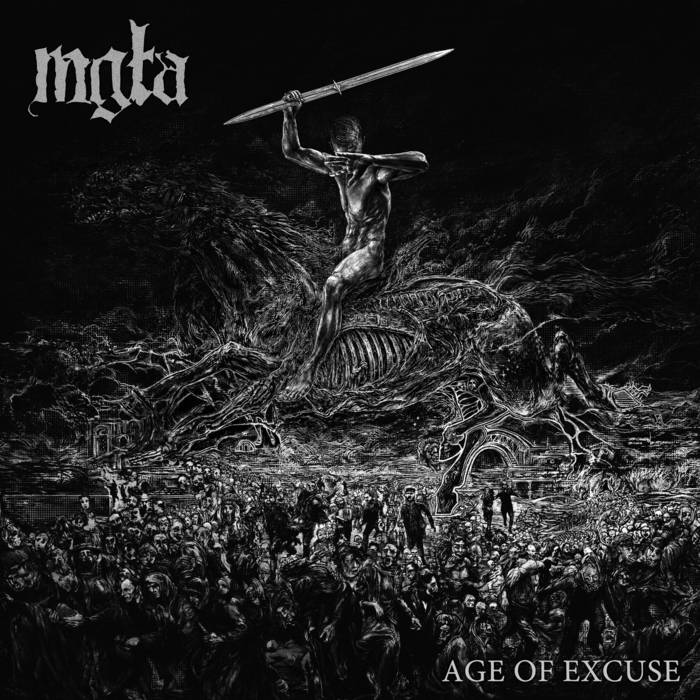
The album that came after. It has everything I like about Exercises in Futility, just better and even more unique.
4. Killswitch Engage – Alive or Just Breathing (2002)
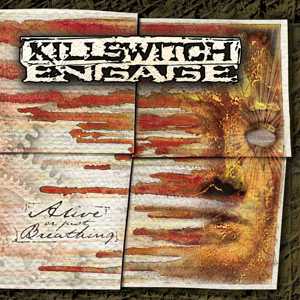
I know exactly why this album still receives all this attention to this day: it was a seminal record in the formation of metalcore that influenced countless other bands. Yet, as the band’s sophomore record, it retained the raw grittiness they arguably lost in later releases as they matured. It also didn’t hurt that lead singer Jesse Leach quit the band just before they were about to tour to support this album via email, leaving this record as his last legacy in Killswitch for a decade. But you know what happened after that?
The End of Heartache (2004)
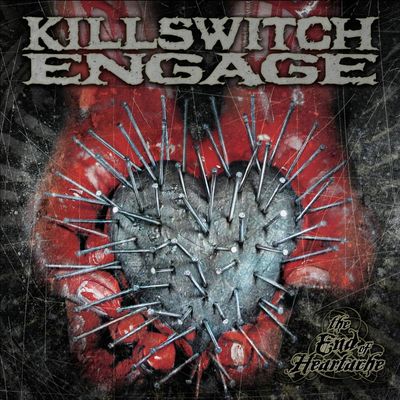
The End of Heartache might not be “underrated” in terms of commercial success (it outperformed Alive or Just Breathing in sales), but I don’t hear it get as much recognition in metal-centric communities, probably due to its relatively more accessible sound. Just look at reviews on the Metal Archives to see what I mean:

Since my first exposure to Killswitch Engage was the Howard Jones era of the band, I have a particular affinity to his material on that basis alone. I also find his voice, especially his clean vocals, to be some of the most unique in metalcore. However, Jones was also a more mature, better-trained vocalist when the band hired him to replace Leach (something Leach himself admitted in later interviews).
The End of Heartache also features entirely new material, whereas Alive or Just Breathing has a few rerecorded songs from their debut album. Although I definitely prefer the Alive versions of the songs, I’m not a big fan of rerecordings in general, so I appreciate how they approached this album as an entirely fresh start with a new lineup.
3. Slipknot – Iowa (2001)
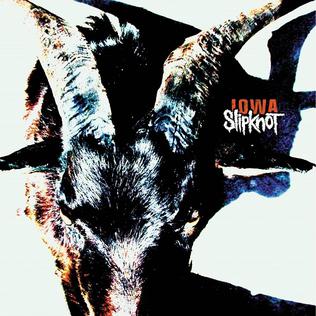
What can I say about Iowa that someone else smarter and more qualified than me hasn’t already said? The band wrote the album as a giant middle finger to their record label, the music industry in general, and to each other, yet it received more radio and TV airtime than a record this heavy had any business getting. It even got them invited back to Late Night with Conan O’Brien, for crying out loud.
-Thousands of soccer moms across America on August 11, 2001.
It received the most votes in this (admittedly dated) poll, and one of the band members (I think it was Corey) named it as his favorite Slipknot album in an article I can no longer find (but I swear I read it once). I’ve also heard this record’s influence in works by bands like Of Mice & Men, Bring Me the Horizon, and Impending Doom, to name a few.
The band wrote it in the darkest era of any of the members’ lives, and it shows. They put everything they were going through into this record: deaths of loved ones, addiction, depression, inability to cope with fame, and animosity towards each other. And they force you into that same place with remorse when you listen to it. What can top that?
All Hope is Gone (2008)
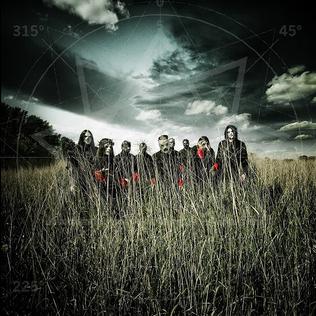
This record tended to get the dubious honor of “least best Slipknot album” from both fans and members of the band (according to that same article I can no longer find) until The End, So Far came out, but I couldn’t disagree more. Not unlike the above band, part of this disagreement stems from All Hope is Gone being my first exposure to Slipknot. But I’ve listened to Slipknot’s entire discography countless times since, and this album remains my favorite.
All Hope is Gone best demonstrates Slipknot’s songwriting range: tracks like “Gematria (The Killing Name)” and “All Hope is Gone” demonstrate they were just as heavy as ever, “Sulfur” and “Dead Memories” demonstrate their (relatively) radio-friendly side, and “Snuff” shows a new, mellower side of Slipknot we hadn’t seen before when it came out.
That said, I know my opinion on All Hope is Gone isn’t that unpopular, since I’ve heard my fair share of riffs that clearly take inspiration from it as well. Just listen to “Devil’s Night” by Motionless in White and tell me they weren’t blasting “Psychosocial” on repeat when they wrote it:
Hell, I’d even argue Morbid Saint’s 2015 album Destruction System takes a page from All Hope is Gone‘s book:
This was also their last album with bassist Paul Gray and drummer Joey Jordison, the former passing away and the latter being fired. Although I think they hired worthy replacements and still enjoy their subsequent material, learning the drama later on about how the band let Jordison go (and other members since then) kind of taints that enjoyment.
2. Katatonia – Brave Murder Day (1996)

Katatonia is my favorite band, hands down. The Brave Murder Day album artwork is the back patch on one of my battle vests. But I love all of Katatonia’s work, from their early blackened death/doom to their more recent alt rock/metal/whatever.
However, there are some Katatonia fans who bemoan how they stopped growling, gradually improved the mix on subsequent albums, and generally softened their sound. And this album in particular seems to be the favorite of early era Katatonia purists. It has the highest average user review of all Katatonia albums on both AllMusic and Metal Storm (a few ADHD cases ruined the streak on the Metal Archives reviews, but its average is still pretty high). I have seen multiple people both on online forums and in person at Katatonia shows bemoan how they don’t play anything from Brave Murder Day live anymore.
Look, I get it. We all want our favorite bands to keep writing material they wrote when they were broke metal musicians who got made fun of for having long hair. But you know which Katatonia album still fits that description even better?
Dance of December Souls (1993)

You know how I said a couple ADHD-ridden haters kept Brave Murder Day from notching the #1 spot on the Metal Archives reviews? Well, one of them gave this album a 100%. Although his sense of proportion may be off, he is correct that Dance of December Souls is the superior early Katatonia album.
Unlike Brave Murder Day, Katatonia didn’t need to enlist outside help to do harsh vocals when they recorded Dance, with Jonas handling all vocal duties. Sure, he might have ruined his voice in doing so and never growls anymore, but it was a damned good effort while it lasted.
Brave Murder Day also suffers from being repetitive at times, with a couple intro riffs sounding virtually identical. This wouldn’t be the last time Katatonia would have this problem, but at least they released Dance before developing the habit.
Hell, the reason Brave Murder Day is my back patch is because it was they only back patch Katatonia had on their online merch store at the time. If I had the choice to get a Dance of December Souls back patch…well, I would still get the Brave Murder Day one because the Dance album art is kind of goofy. But I still prefer the album.
1. Deafheaven – Sunbather (2013)

If this album is good at anything, it’s eliciting strong reactions.
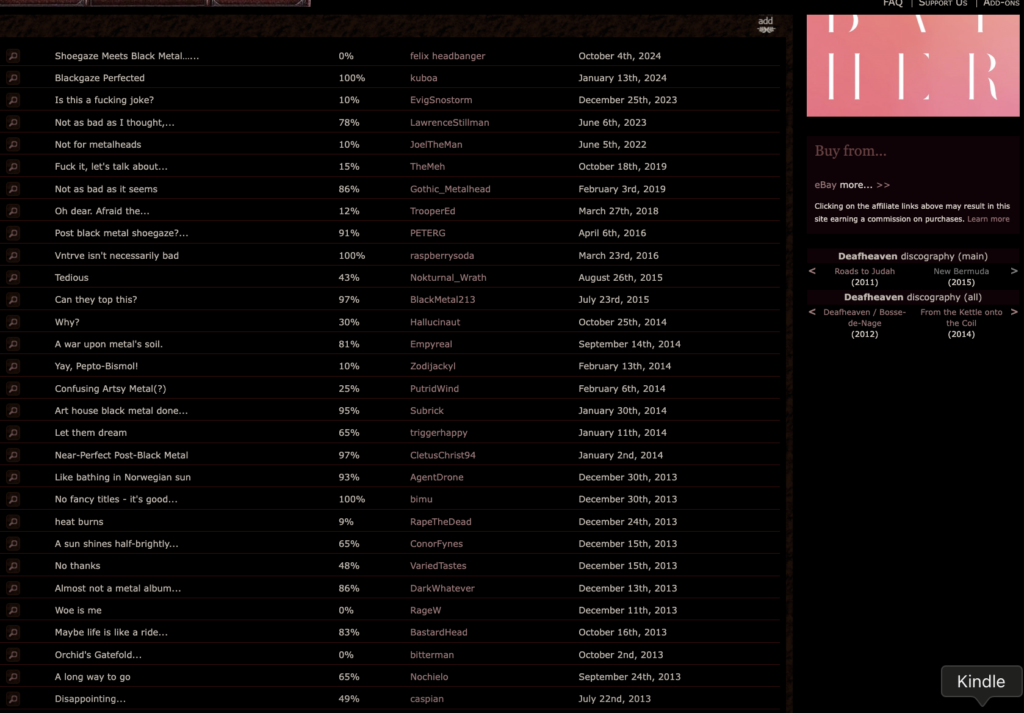
It was undoubtedly a new, innovative sound that few both in and outside the metal community had heard before. Whether or not that was a good development wildly depends on whom you ask, but every metalhead needed to have an opinion on it.
Combining black metal, shoegaze, and post-rock isn’t exactly what I would have pegged as the formula for commercial success, but it made Deafheaven a household name, receiving praise on platforms like Metacritic and NPR. And thanks to said mainstream success, it brought together two of the most insufferable subcultures on the planet, both of whom ironically detest mainstream attention:

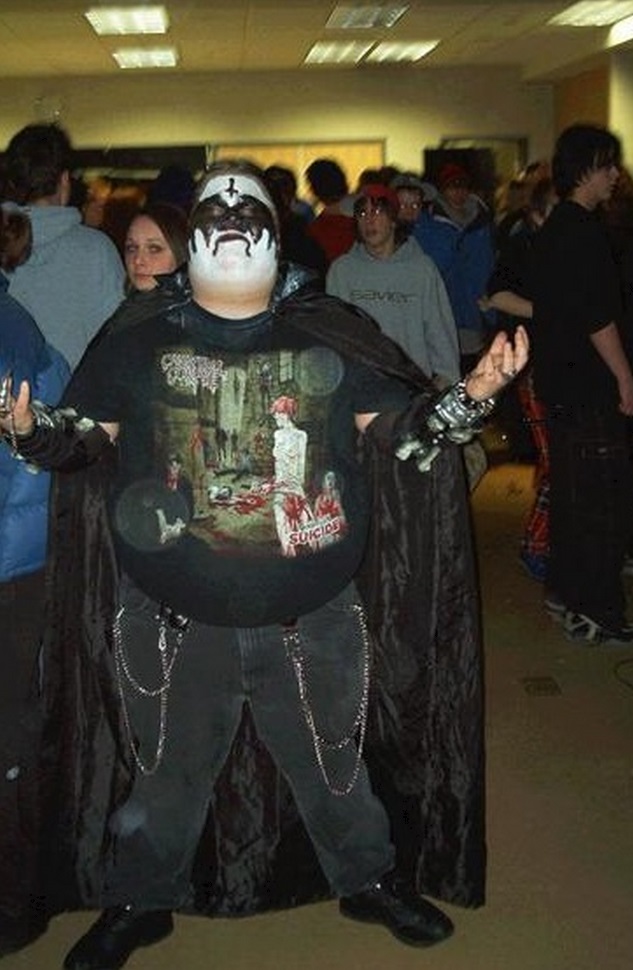
Deafheaven had already done something similar with 2011’s Roads to Judah, albeit a little less refined, so it’s understandable that their sophomore effort overshadowed it for attention. Yet Deafheaven has released three more records at the time of this writing, some more black than gaze, others more gaze than black. So which of these attention-starved middle children needs another listen after being eclipsed by Sunbather?
Alcest – Écailles de lune (2010)

Look, guys. I tried. I really tried to hold myself to my own standard here and pick another Deafheaven album. I knew I had to include Sunbather when I first had the idea to write a listicle of albums that receive way more attention than anything else the band has released. But as I wrote about the rest of the albums, I realized I needed to add more commentary about other albums by the same bands that deserve more time in the spotlight. This metric ironically helped keep this article shorter (some of these fan favorite albums are fan favorites for a reason).
Yet when I got to Sunbather, I drew a blank. Hell, I don’t even think I had even listened to their entire discography before writing this, and the Deafheaven album I had listened to the most was already Sunbather. It’s not that I was particularly crazy about it, but I kept going back to it to try and figure out what all the fuss was about.
And every time I came away with the same impression: “That was pretty good. I guess I get the appeal, but I don’t see why all the hipsters are raving about it. I do understand why all the black metal elitists hate it, but they need to pull their heads out of their butts. It’s not trve black metal, but that doesn’t mean it’s bad.”
That was it.
Yet I knew Sunbather had to have the #1 spot on this list, so I dutifully listened to their entire discography trying to find the Deafheaven album that deserves its time in the spotlight.
And I couldn’t pick one. Not because I had such a hard time deciding between the merits of each album. They all have their own unique sound that stands out from one another, but they all ultimately made the same impression on me as Sunbather: pretty good but none stand out in particular.
So if I was going to compare it to an album that deserved more attention, why not compare it with an album by the band who actually created blackgaze?
Deafheaven was only being formed when Alcest released Écailles de lune, which was Alcest’s sophomore album at that. What Écailles lacks in Billboard rankings or NPR coverage it makes up for in memorable hooks and unique vocals that entrance the listener.
I couldn’t tell you why Sunbather was the record to break blackgaze into the mainstream, but I don’t begrudge Deafheaven’s success at all. More power to them. It seems like a fair tradeoff for being the lightning rod for all the black metal purists’ ire so I can enjoy my Alcest in peace.
